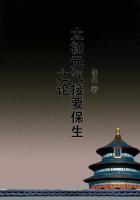On rejoining his three friends, D’Artagnan found them assembled in the same room. Athos was meditating, Porthos was twirling his moustache, Aramis was reading prayers in a charming little Book of Hours, bound in blue velvet.
“By Jove,” said he, “gentlemen, I hope what you have to tell me is worth the trouble; or else, I warn you, I will not pardon you for making me come here instead of getting a little rest, after a night spent in taking and dismantling a bastion. Ah! why were you not there, gentlemen? It was warm work.”
“We were in a place where it was not very cold!” replied Porthos, giving his moustache a twirl that was peculiar to him.
“Hush!” said Athos.
“Oh, ho!” said D’Artagnan, comprehending the musketeer’s slight frown; “it appears there is something new on hand.”
“Aramis,” said Athos, “you went to breakfast the day before yesterday at the tavern of the Infidel, I believe?”
“Yes.”
“How did you fare?”
“For my part, I ate but little. The day before yesterday was a fastday, and they had nothing but meat.”
“But that is not quite what I asked you,” replied Athos. “I want to know if you were left alone, and nobody interrupted you.”
“Why, I think there were not many intruders. Yes, Athos, I know what you mean; we shall do very well at the Infidel.”
“Let us go to the Infidel, then; for here the walls are like sheets of paper.”
D’Artagnan, who was accustomed to his friend’s manner of acting, and perceived immediately by a word, a gesture, or a sign from him that the circumstances were serious, took Athos’s arm, and went out with him without saying anything. Porthos followed, chatting with Aramis.
On their way they fell in with Grimaud. Athos beckoned him to come with them. Grimaud, as uusal, silently obeyed; the poor lad had nearly come to the pass of forgetting how to speak.
They arrived at the taproom of the Infidel; it was seven o’clock in the morning, and daylight began to appear. The three friends ordered breakfast, and went into a room in which, the host said, they were not likely to be disturbed.
Unfortunately, the hour was baby chosen for a private conference. Reveille had just been beaten; every one was shaking off the drowsiness of night, and, to dispel the humid morning air, came to take a drop at the bar. Dragoons, Swiss, guardsmen, musketeers, light-horsemen succeeded one another with a rapidity which might answer the landlord’s purposes very well, but agreed badly with the views of the four friends. Thus they replied very curtly to the salutations, healths, and jokes of their companions.
“Come,” said Athos; “we shall get into some pretty quarrel or other, and we don’t need one just now. D’Artagnan, tell us what sort of a night you had, and we will describe ours afterwards.”
“Ah, yes!” said a light-horseman, lolling about with a glass of brandy in his hand, which he was leisurely sipping—“ah, yes! You gentlemen of the guards were in the trenches last night, and you had a bone to pick with the Rochellais.”
D’Artagnan looked at Athos to know if he ought to reply to this intruder, who mixed unasked in their conversation.
“Well,” said Athos, “don’t you hear M. de Busigny, who does you the honour of addressing you? Relate what has passed during the night, since these gentlemen wish to know.”
“Did you not take a bastion?” asked a Swiss, who was drinking rum out of a beer-glass.
“Yes, sir,” said D’Artagnan, bowing; “we had that honour. As you may have heard, we even put a barrel of powder under one of the angles, which, when it blew up, made a very pretty breach—without reckoning that, as the bastion was not built yesterday, all the rest of the building was much shaken.”
“And which bastion was it?” asked a dragoon, with his sabre run through a goose, which he was taking to have cooked.
“The bastion St. Gervais,” replied D’Artagnan, “from behind which the Rochellais have been annoying our workmen.”
“Was the affair hot?”
“Yes, moderately so. We lost five men, and the Rochellais eight or ten.”















